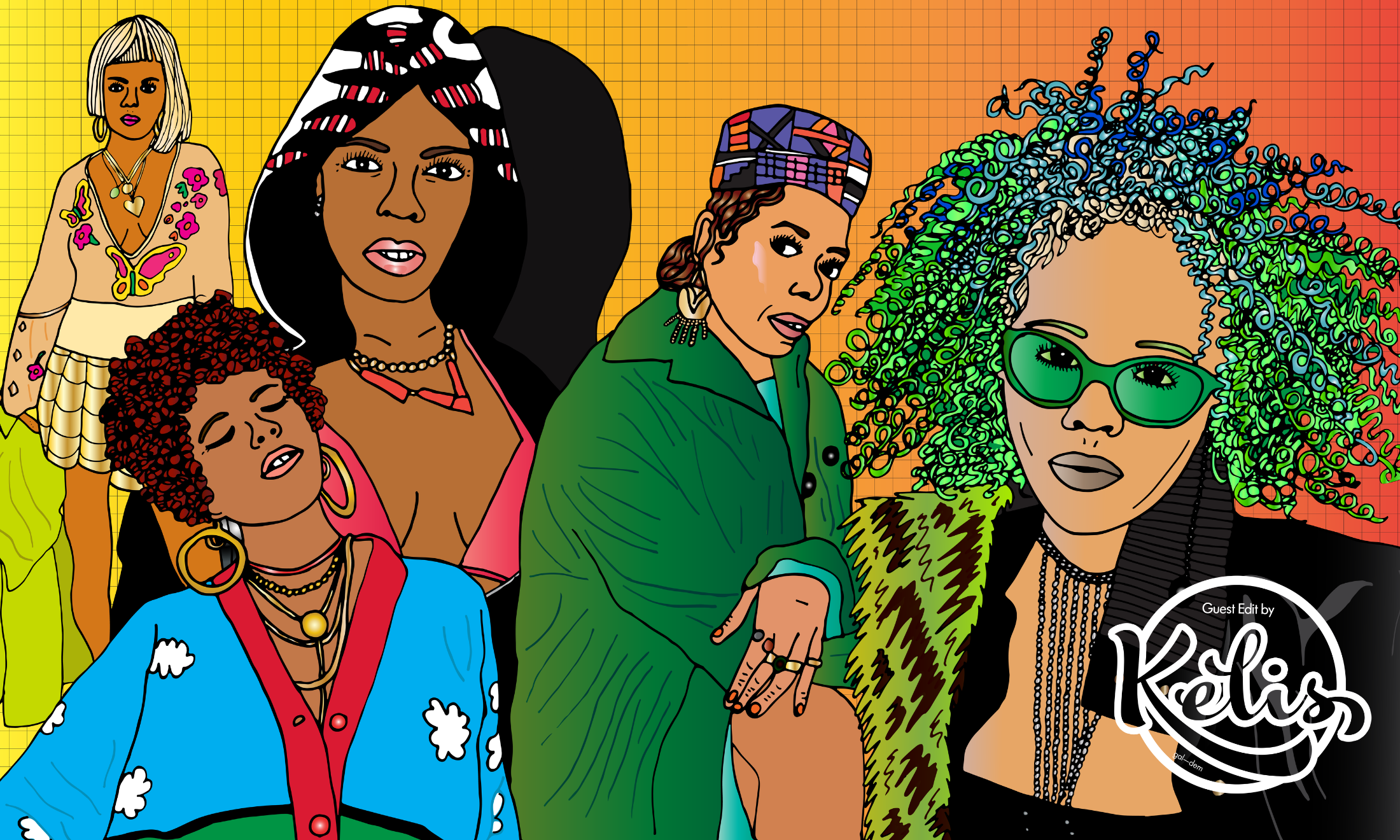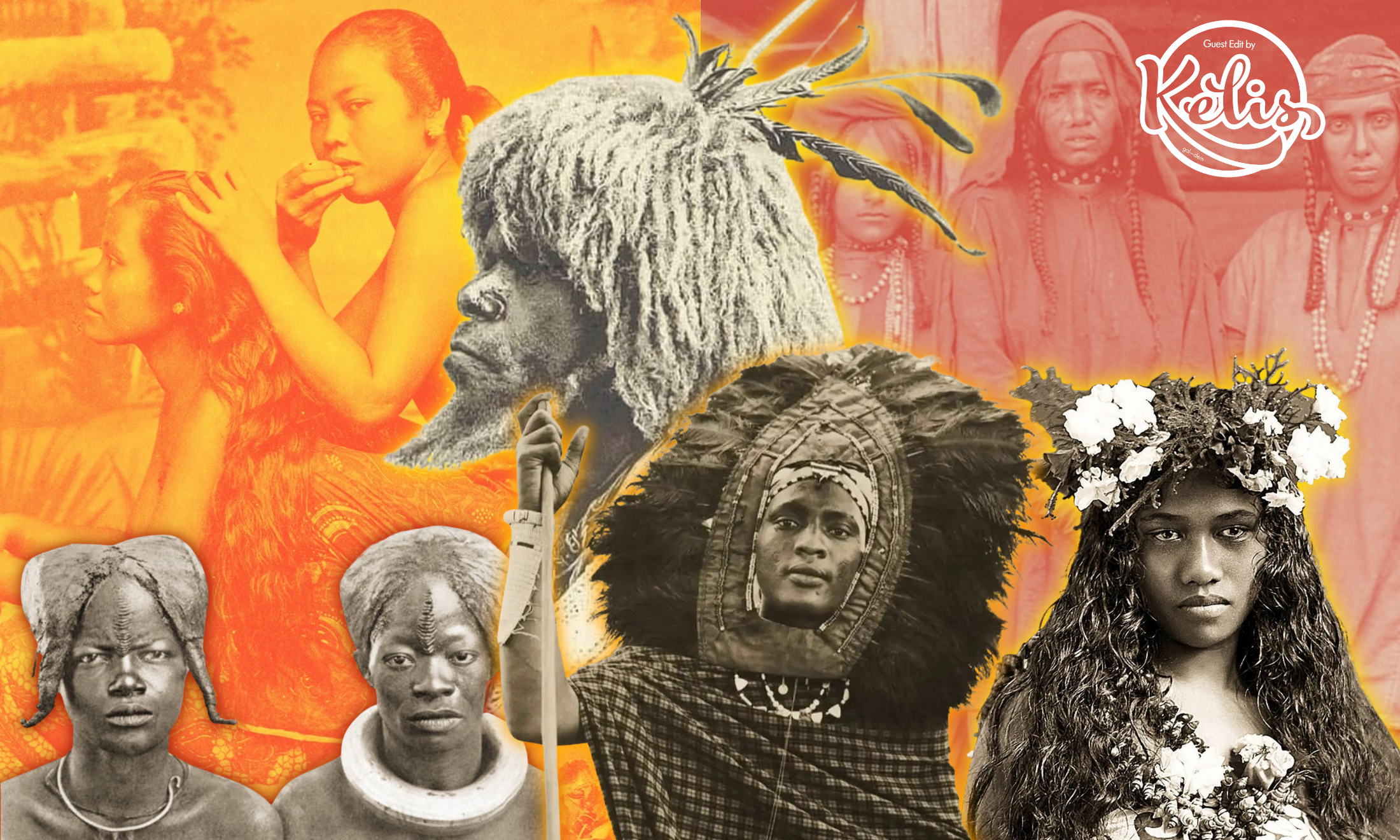The Parables of a Beloved Writer: Kelis on Octavia Butler and the beauty of sci-fi
As part of Kelis’ guest edit, we speak to Black British readers to discuss her favourite author, Octavia Butler.
Sofia Akel
13 Oct 2021

Nikolas Coukouma | Wikimedia Commons
Sci-fi is a genre that most of us are familiar with or have at least heard of. Think dystopian futures, intergalactic space travel, traversing time and alternate realities. But who are the main characters of these stories? Who gets to be imagined in the future, or who even gets a future? This is something that Kelis, beloved superstar musician and self-confessed “sci-fi baby,” has thought long and hard about. “I feel like in science fiction, they like to write us out of the future,” she tells gal-dem. “Like somehow the blacks have gone, which I’m not having.”
For Dr Hannah Robbins, Director of Black Studies at the University of Nottingham, science fiction “allows us to imagine worlds beyond our own in the broadest sense. It can allow discovery, for us to reshape notions of identity and who we could be now as well as encourage us to change and cherish things we currently have.” Octavia Butler is one such author who did just that. “[She] is one of my favourite ever. And she’s a Black science fiction writer,” says Kelis. “She wrote these beautiful epic, futuristic tales where we were thriving and living, and I just think it’s dope. I love science fiction. Love it. Love it. Love it.”
“I love science fiction. Love it. Love it. Love it.”
Kelis
Octavia Butler is heralded by fans across the world, particularly among African and Caribbean diasporas, as a transformative writer. Born in California in the 1940s, Octavia loved immersing herself in books at the local library. Upon exploring the sci-fi genre of the time, she thought to herself, “I could write something better than that.” She would later go on to gift the world with treasured works of literature such as the highly-acclaimed Patternist series (1976-78), Kindred (1979) and Parable of the Sower (1993).
Butler has been described by some as a prophetic writer through her ability to imagine hyper-realistic futures – a certain recent US president claiming to “make America great again” adopted the same campaign slogan as the fictional presidential candidate in Butler’s 1998 novel Parable of the Talents – whilst others describe her work as a warning sign of things to come, communicated through speculative fiction.
Hannah draws parallels between Octavia’s work and other adorned Black writers, uncovering comparable themes in Akwaeke Emezi’s recent publication Dear Senthuran: A Black Spirit Memoir (2021). “In one letter to Toni Morrison Emezi explains how they internalised a quote from Morrison about taking a position and waiting for the world to move to her rather than going to meet the lines already drawn.” In linking these literary greats, Hannah states “all three authors remind us not to apologise for our positionalities and hold ground. I hope [Octavia’s] actions have and will empower her readers to make their art or live their lives as they need to.”
To K Bailey Obazee, Founder of Prim Black, a queer and Black book club, “Octavia’s work is the entry point to understanding our individual existence in relation to the societies we’re each born in to. Her work has always made me want to investigate both my intentions and my purpose.” As a genre that has historically, and to an extent presently, imagined a world in which Black people do not exist, it can be a daunting challenge to step inside these realms as a reader. However, K Bailey reassures that Octavia’s writing is “quite accessible… Some people think sci-fi means words and things you might not understand but it’s ultimately about expanding imagination.”
“[Octavia Butler’s] work has always made me want to investigate both my intentions and my purpose”
K Bailey Obazee
Publishing works over the latter part of the 20th-century, Butler’s books were dystopian in their essence, yet hopeful and multifaceted. At a time where America was (and continues to be) in its own form of social and political turmoil, with the American War on Vietnam, the War on Drugs, and the War on Black lives, academic Hannah imagines that for Octavia, writing “likely felt like the only way to bring [the turmoil] into the light so the rest of us could see what she could. She depicts a pathway out from under oppression.”
Such writing mirrored the strife that punctuated many of those years over the 1970s to the 1990s for Black Americans. “What I really love about Butler’s work is that she is able to take things that happen in her present and speculate about what it may look like in the future as a way to comment on things that need to change in the present,” says Melz Owusu, founder of the Free Black University.
Octavia also presents her characters and their narratives in ways that offer nuance, complexity and the dignity of experiencing the full breadth of human emotion that is not confined by oppression. “Octavia Butler really believes in Black people and our capacity to love and to thrive,” says Hannah. “So often our communities are presented without joy or as victims of conditions imposed on us – [she] doesn’t hide from these themes but they are contexts rather than identities for her characters.”
“Octavia also presents her characters and their narratives in ways that offer nuance, complexity and the dignity of experiencing the full breadth of human emotion that is not confined by oppression”
Standing tall among each line of text are lessons to be learned by all. “All that you touch you change, all that you change changes you. The only lasting truth is change,” is one of the many frequently cited quotes from Parable of the Sower that exemplifies how deeply reflective her writing was. “It means that we never have all the answers but we are always able to look for them,” says Hannah. For K Bailey, it’s a reminder to be in tune with one’s self, actions and responsibilities. “It reminds me that I’m always growing, constantly learning and ever-changing in incremental and hopefully always positive ways for the community I want to serve.”
Melz explores this connection with community further, linking Butler’s works to the liberation struggles and radical reimagining of the future that we are increasingly bearing witness to today through calls for prison abolition, anti-capitalism and more. “To me it’s a different form of knowledge production,” they say, emphasising not just the immediate gratification of reading, but the learning that we can take away from these worlds. “The way that [Octavia Butler] uses speculative fiction and the way that we can use that now, in retrospect, shows us the ways that we create the future, essentially doing science fiction.”
Does the science fiction genre allow us to break out of the boundaries of our own being and create a reality from all that was imagined? For the readers we asked, the answer is a resounding yes. “Butler is a key author for conceptualising social justice – she tests imaginings,” says Hannah. “Her characters wrestle with leadership, structures of organisation, resistance, community, with how love and sex interact with envisaging futures and how we perpetuate and rely on principles we’ve internalised – right and wrong.”
“Butler is a key author for conceptualising social justice”
Hannah Robbins
Kelis lovingly concludes that Octavia Butler was “like someone [who] raised me when I was younger.” Her writing is more than a stand-alone body of fiction, it has evolved into a treasured, cultural heirloom passed between generations of Black folk. Reminiscent of the oratorical wisdom passed down to us from our elders – well-trodden paths where lessons learned are carefully and delicately crafted, become sacred in their passing to us.
“I just introduced my kids to her,” the singer tells gal-dem. “I’m super hyped about it. I tried to introduce them to writers that they probably wouldn’t be reading at this age, but that I can read to them.” Through the passing down of her books, Kelis is among the many who honour Octavia’s memory, keeping her imagination alive in the generations that enter the years Butler had once imagined and wrote about. Thank you, Octavia Estelle Butler.









